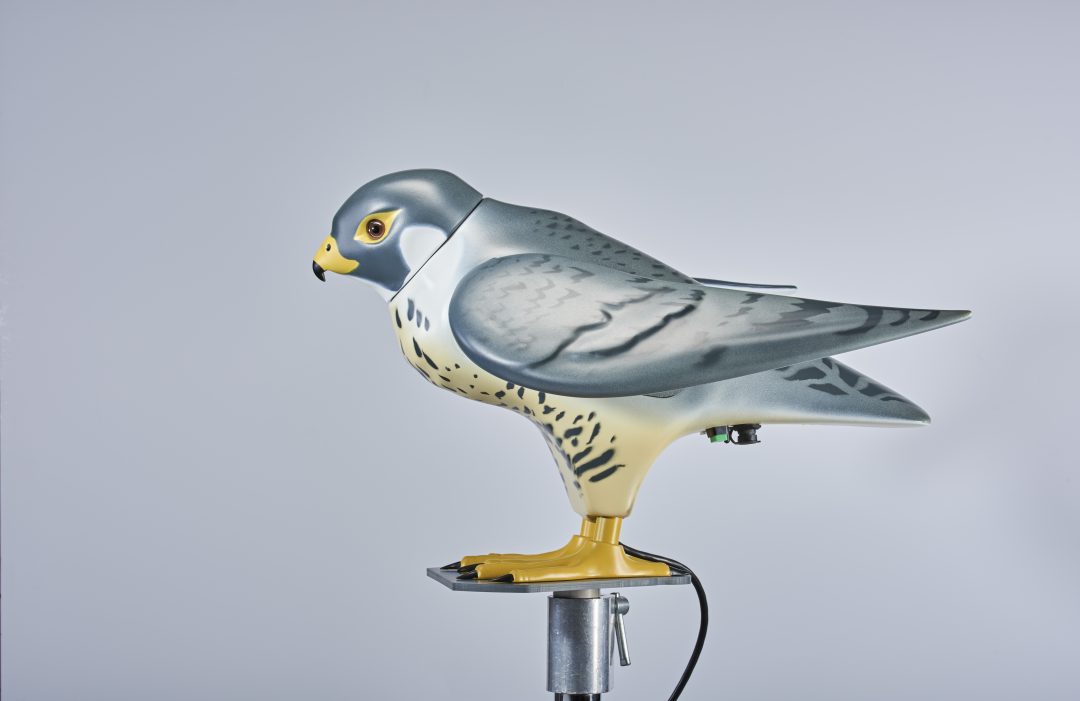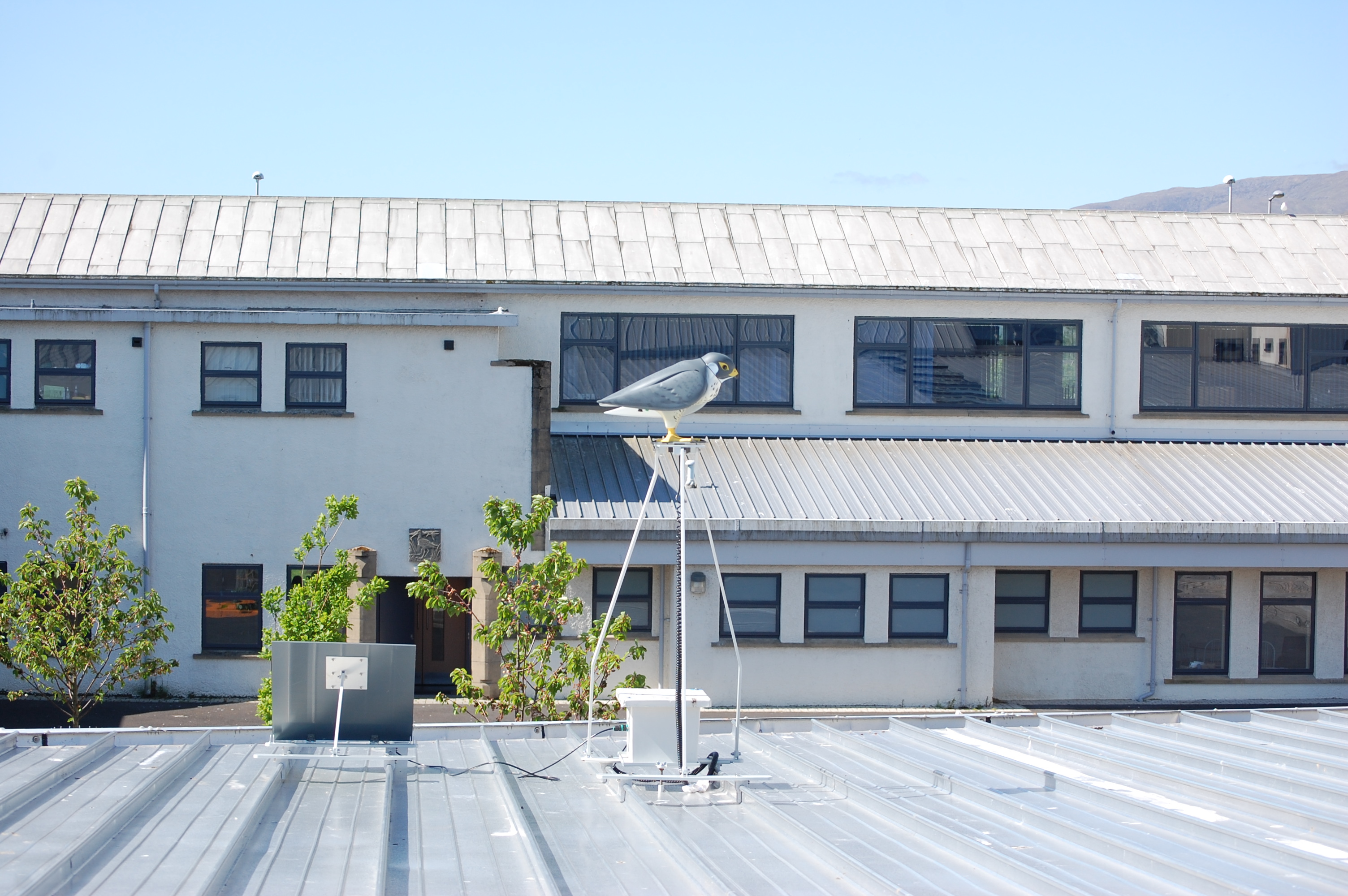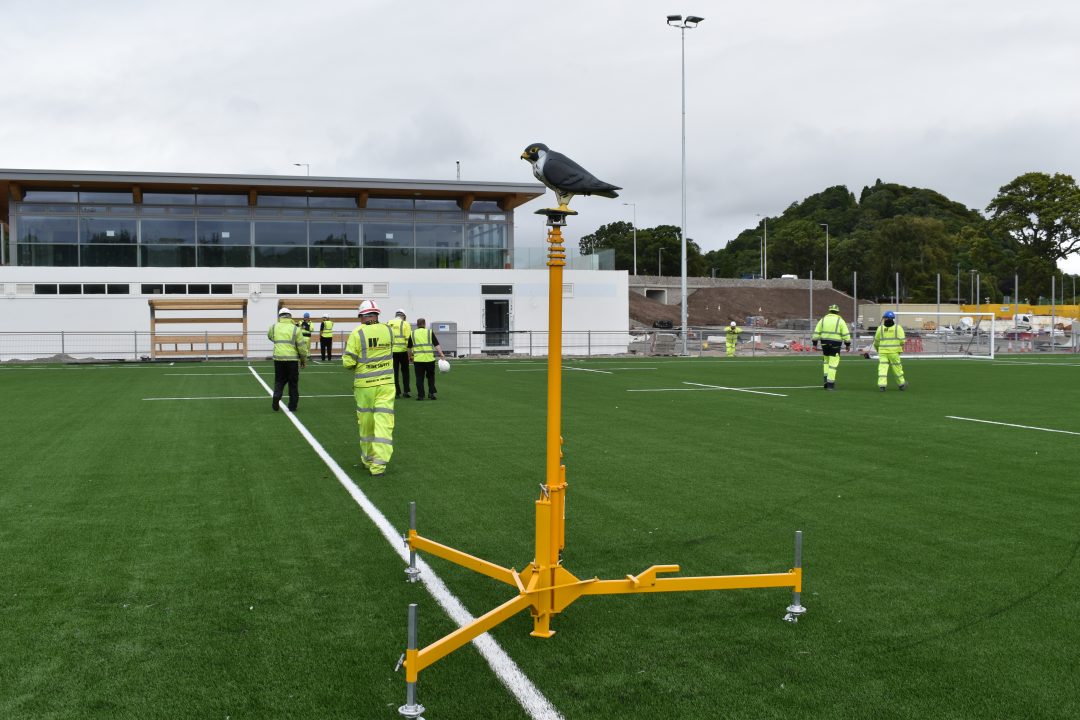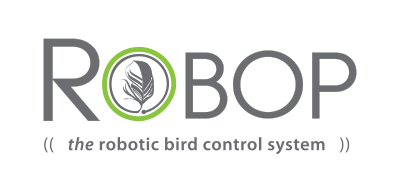THE R:FALCON

The Peregrine Falcon is the world’s fastest bird of prey, travelling at speeds of up to 155mph (250kph) and feasting on birds from Ducks to Pigeons. What better model for a bird deterrent than a fast and terrifying predator? Well, that’s what we thought when we were inspired to create the R:Falcon.
The R:Falcon is a patented autonomous robot that looks, moves and sounds like a Peregrine Falcon. It works to deter birds nesting and roosting on the buildings and properties of businesses worldwide.
R:Falcons are manufactured to order by our experienced team at our workshop just outside Edinburgh. They are fabricated from a either a composite fibre or carbon fibre exterior. We paint the R:Falcons in house, constructing them using over 100 parts, including precision machined components. All R:Falcons are meticulously tested to ensure we provide you with a premium product that is built to last.
R:Falcons are available in 3 power types: AC (Mains), DC (Internal battery) and Solar. They can be installed and replaced easily and can be easily maintained long term.
POWER
Our R:Falcons have been designed to use very little power, between 0.3 and 5 watts, and come in 3 different power options, AC, DC, and Solar. All of our Falcon versions comply with the European Union’s EMC (Electromagnetic Compatibility) directive and the USA’s FCC.
R:Falcon DC has a 13AHr internal battery pack. This allows the bird to run for at least one week between charges. Being completely self-contained allows the birds to be easily and quickly moved around your site with minimal effort. However, you need good access and staff available to take down the bird each week for charging.
R:Falcon AC (Known as outlet power in the USA and Canada) is a convenient option where access is more difficult. AC Power is a great choice for new builds, as installing an extra circuit during the design/build stage is much more cost-effective. This is especially true of large build projects.
R:Falcon Solar Like the AC version, solar is a great option where weekly charging isn’t practical. Great for the eco-conscious and for clients who don’t already have external power sockets installed on the roof.
Both solar and AC systems allow 24hr 365-day operation in all weather conditions. Whichever choice you make we provide everything you need.
R:FALCON SOLAR SYSTEM

This system designed and built by Robop has been refined after many years of testing and practical experience from customer sites.
Each system consists of a Solar R:Falcon mounted on a tripod. The feet
are fabricated to fit the profile of the roofing sheets on the customer’s premises.
A bearing assembly allows the R:Falcon to rotate and a tough marine grade coiled cable connects the bird to an 80AHr deep cycle battery and solar charge regulator. These are contained within a fibreglass box which connects to a marine solar panel, enabling the sun to power your Falcon.
The solar panels we use were selected after extensive tests at the 56th Parallel North. Solar energy is at its lowest during the winter months at this latitude. This means the solar panels are capable of keeping the R:Falcon charged through a cold, dark winter. The panels are light weight and have no glass. This means they can be walked on and avoids any potential safety hazard for staff.
This system is quick to install and suitable for any roof.
THE R:FALCON OUTLANDER SYSTEM

The R:Falcon Outlander system was designed to combat problems incurred by pest birds congregating on synthetic sports pitches. Gulls commonly cause damage and contaminate synthetic pitches by hanging out, eating, defecating and pecking the pitch surface. The Outlander System was especially designed by our expert engineers to tackle this problem.
Why synthetic pitches? Synthetic pitches provide an ideal rest, gathering and eating spot for birds. The high fences make them difficult for non-winged predators to enter and provide a comfortable safe zone for those witty gulls. Synthetic pitches cost an average of £150,000. Thanks to their hard-wearing surface and low maintenance appeal, they have become the popular turf for sports. Gulls however, pose a significant risk to this flexible surface. Their waste penetrates deep into the fibres, requiring specialist cleaning. A surface clean alone can cost an average of £3,500 and a deep clean up to £50,000 – £60,000.
